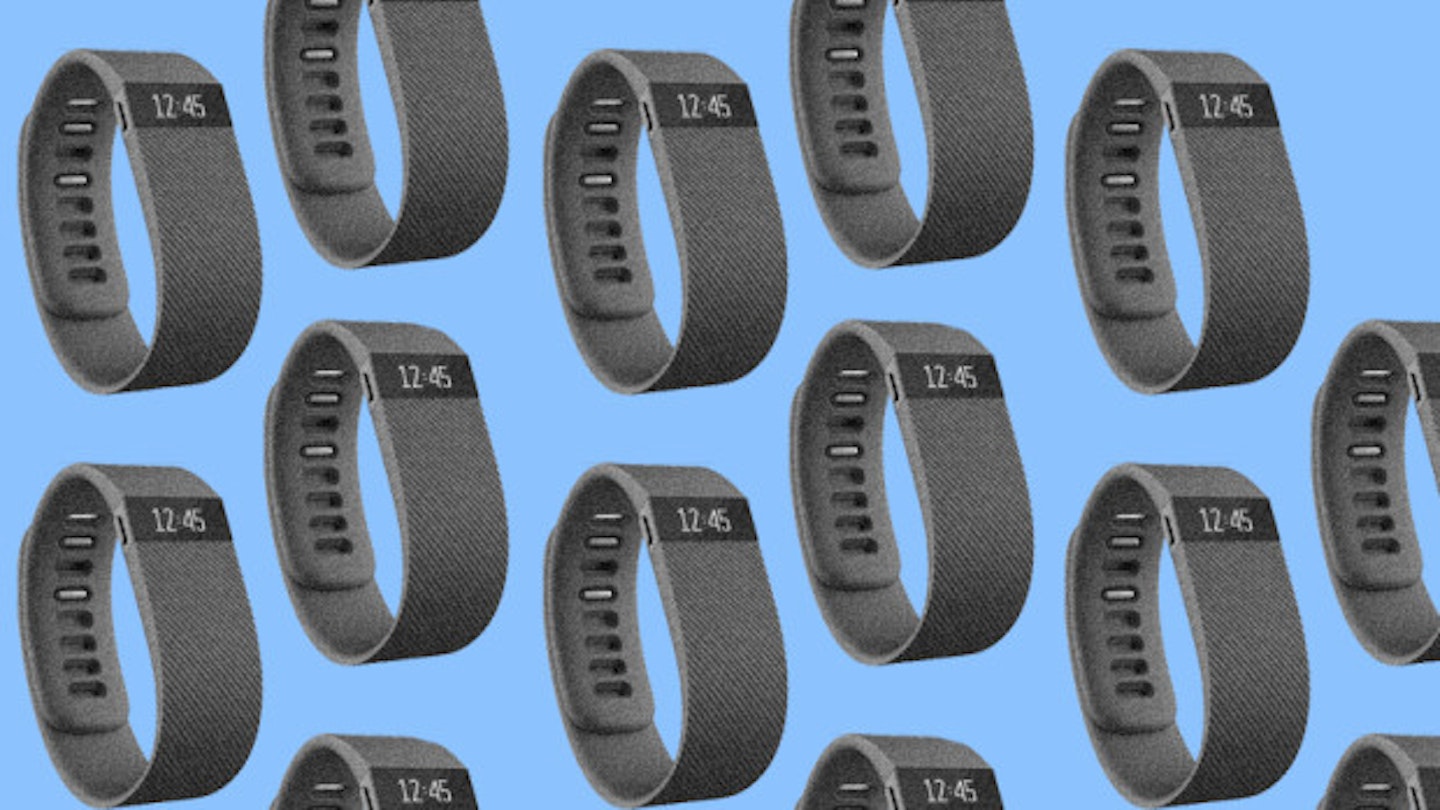In a cruel world where we’re chained to our desks all day while simultaneously being told that sitting down is the new devil, fitness trackers have become mainstream – with everyone from fashion editors to middle-aged dads wearing them.
A fifth of 16 to 34-year olds now wear a fitness tracking device on their wrist and three million were sold in the UK last year alone. Devices like Fitbits and Jawbones, paired with apps like MyFitnessPal, turn fitness and nutrition into numbers, giving us data about our steps, calories and sleep that we didn’t even know we wanted.
For some people, all this data is overwhelming and having a plastic personal trainer around their wrist 24/7 has been a fast track to misery.
They’ve become obsessed with reaching their fitness and nutrition goals, to the extent that they become the most important thing to achieve each day. Dieting and calorie counting obviously aren’t new, but these apps and devices make it easier to become preoccupied with numbers.
Research shows that trackers can induce anxiety – something Amy Davies, 28, a freelance photographer, has experienced. Since getting a Jawbone in the Black Friday sales, she has become obsessed with checking her stats and gets anxious when there’s a chance she might miss her daily target. On one occasion, when cooking a big family meal, she realised she wouldn’t be able to leave the house to reach her step goal. 'I found myself wondering if I could sneak out and stressing over whether I'd have time to go for a long walk before people arrived.' She told us.
The prospect of being a slave to her device for the long term also induces panic. 'I freak out if I think about what the end point of it is – do I wear [it] for the rest of my life?'
Inevitably, with a busy life it won’t always be possible to achieve your step goal, which can lead to depressive thoughts. Louise, who is in her 30s and works in animation, got a Fitbit for Christmas and is already finding it 'pretty depressing'. With a young son, work commitments and not enough time to exercise or sleep in, she feels powerless to consistently achieve her targets. 'I imagine it would be quite motivating in other circumstances, but I was happier when I was ignorant of my various failures,' she says.
For people with pre-existing mental health problems, compulsive personalities and/or a tendency to self-punish, fitness trackers can push them into the danger zone. Rhiannon Pursall, 30, who works for the NHS, has had anorexia for over a decade and it was spending a year using a fitness tracking app that caused her illness to spiral out of control. 'I became ruled by numbers. Every day I’d have to burn the same number of calories as the previous day, or preferably more, otherwise I felt I hadn’t earned my right to enjoy food that day.'
Pursall’s obsession cost her many friends, and even her long-term relationship. 'During all social interactions, because all of this was going on in my head – especially during meals – I became unable to socialise properly.'
According to Dr Bijal Chheda-Varma, an expert in eating disorders at Nightingale Hospital in London, the main problem with this technology is its accessibility and the way it tracks everything we do. 'This encourages us to become obsessed with sleep, calories and everything we do all the time. The data these devices access make it easier, quicker and instant to check health indicators where previously we could go for annual checkups at the GP.'
Fitness trackers and apps also make users feel in control, says Dr Courtney Raspin, a chartered psychologist who specialises in eating disorders. 'The tracker says if you do this and follow these numbers, you’ll get this result. A false sense of control is very appealing to people, especially if they feel as if other areas of their lives are less under control.'
But fitness-tracker dependency isn’t a life sentence. When the pressure got too much for Bri Wilson, 31, a personal trainer and fitness writer from Canada, she decided to ditch her Fitbit. 'I read a book and realised my obsessive tracking was leaning towards an unhealthy disordered eating behaviour, brought on by my generalised anxiety disorder. I never had a problem with food before.' After having had therapy, she’s in a better place now mentally and has bought a new device to track only her running. 'I won't allow myself to track calories anymore.'
By fixating on health and fitness data, we’ve stopped listening to our own bodies, says Dr Raspin. '"Health" incorporates mental health as well as physical health and the benefits of a stroll around the park or a slice of cake with friends can’t be put into numbers.'
Like this? Then you might also be interested in:
Follow Natalie on Twitter @NatalieRoseGil
This article originally appeared on The Debrief.
